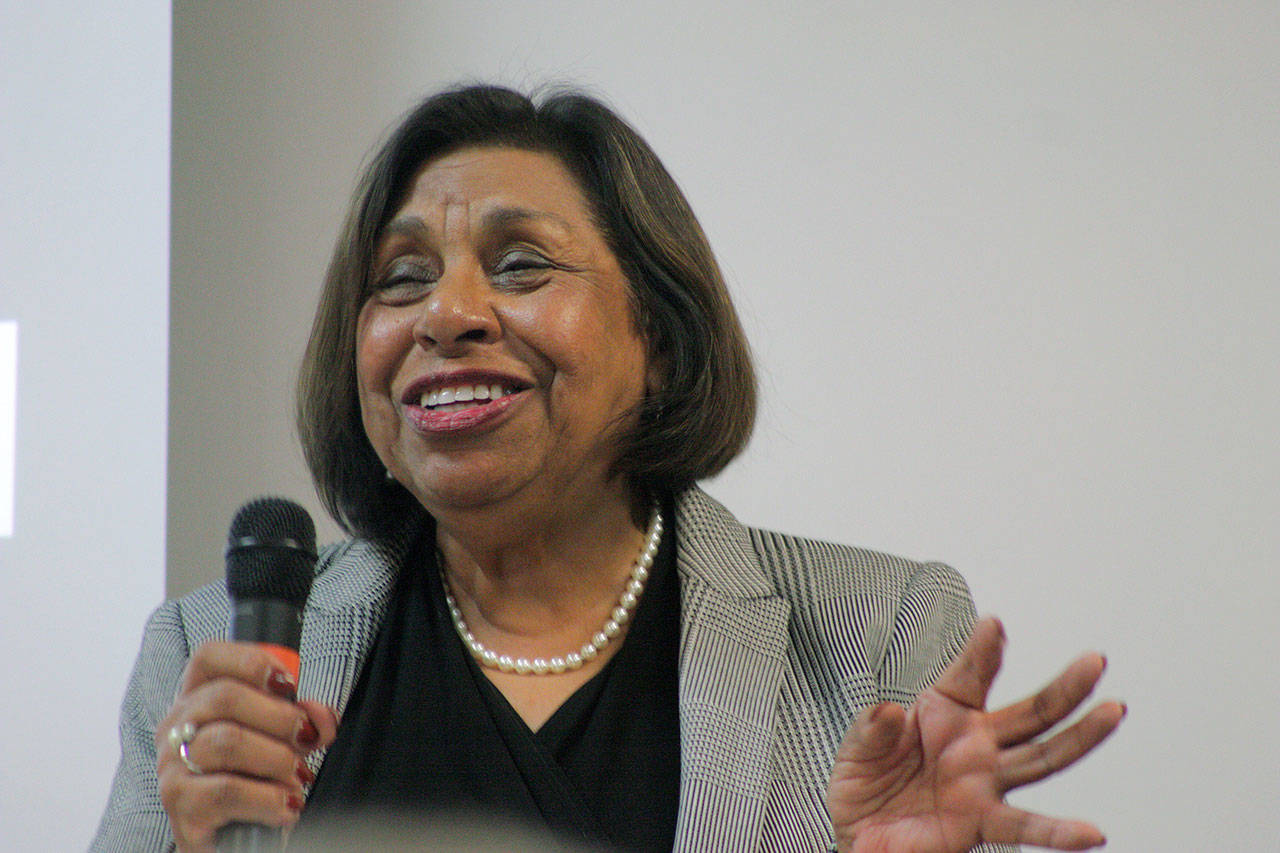As far as the 8-year-old Latina girl was concerned, her parents’ fight with the school district was over a playground, the one belonging to an all-white school with a manicured lawn and beautiful palm trees.
“Never forgot the playground,” Sylvia Mendez said during a recent talk in Kent of her childhood living in the Southern California city of Westminster more than 70 years ago.
Told she couldn’t attend the school, the girl was devastated, confused.
Told their daughter and sons had to attend a nearby, rundown all-Mexican school – the one with two wooden shacks on a dirt lot next to a cow pasture with electric-wire fencing – the parents were upset.
They hired a lawyer and sued the school district.
Four Hispanic families soon joined the legal fight.
Eight months later, the plaintiffs prevailed in a landmark case. Mendez v. Westminster, argued in 1946 and decided a year later, led to school desegregation in California. It set the stage seven years later for Brown v. Board of Education, which paved the way for desegregated schools throughout America.
But change didn’t come easy.
“A white boy came up to me and said, ‘You shouldn’t be here. You don’t belong here,’ ” Mendez recalled. “I started to cry. …
“I asked myself, ‘Why are they doing that to me? Why are they saying that to me? Why don’t they want me?’ ” she continued. “I go home and say, ‘Mother, I’m not going back to that school. They don’t want me at that white school.’ Mother said, ‘Sylvia, don’t you know what we were fighting for?’
“I said, ‘Yes, so I could go to that school with the monkey bars and swing.’ ”
Mendez, a civil rights activist, educational advocate and a 2011 recipient of the Presidential Medal of Freedom, shared her story with students and guests at the Green River College Kent Campus on Nov. 14.
Mendez, 83, is the first speaker in the city of Kent’s new Equity & Inclusion Speaker Series. It was free and open to the public. The series will feature distinguished leaders who will contribute expert knowledge and diverse perspectives to the collective discussion around concepts like race, equity, diversity and inclusion, according to organizers.
City Councilmember Brenda Fincher, who was instrumental in forging the series, said the program is important so that personalities of different race, ethnicity and backgrounds can describe their experiences to Kent’s growing, multi-cultural community.
Unaware of the significance of her family’s actions and the monumental role she played back then, Mendez has brought history to life. She has spent the past 25 years travelling around the country and the world to tell the story of her family’s push for justice. The retired registered nurse made it her personal pilgrimage after her father died and her mother became ill.
Mendez’s message is clear, bold and straightforward.
”We can fight bigotry, we can fight injustice, we can fight anything because if we all unite, everybody will join you. And that’s what I tell students,” she said. “If you stand up for something that’s right, people will join you and people will help you because they know what is right and what is wrong.”
Mendez also stressed the importance of education, especially for Hispanic Americans, whose youth struggle to stay in school. She implored parents to support their children’s education and to inspire them to learn and grow.
“There’s nothing that can prevent you to become whatever you want,” she said.


